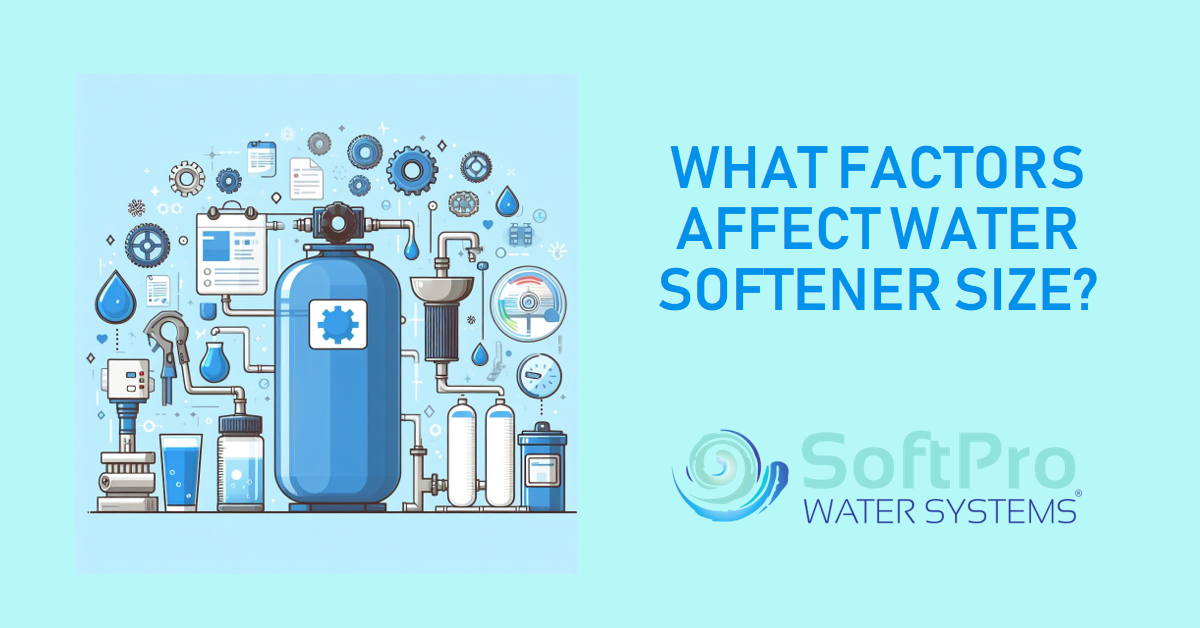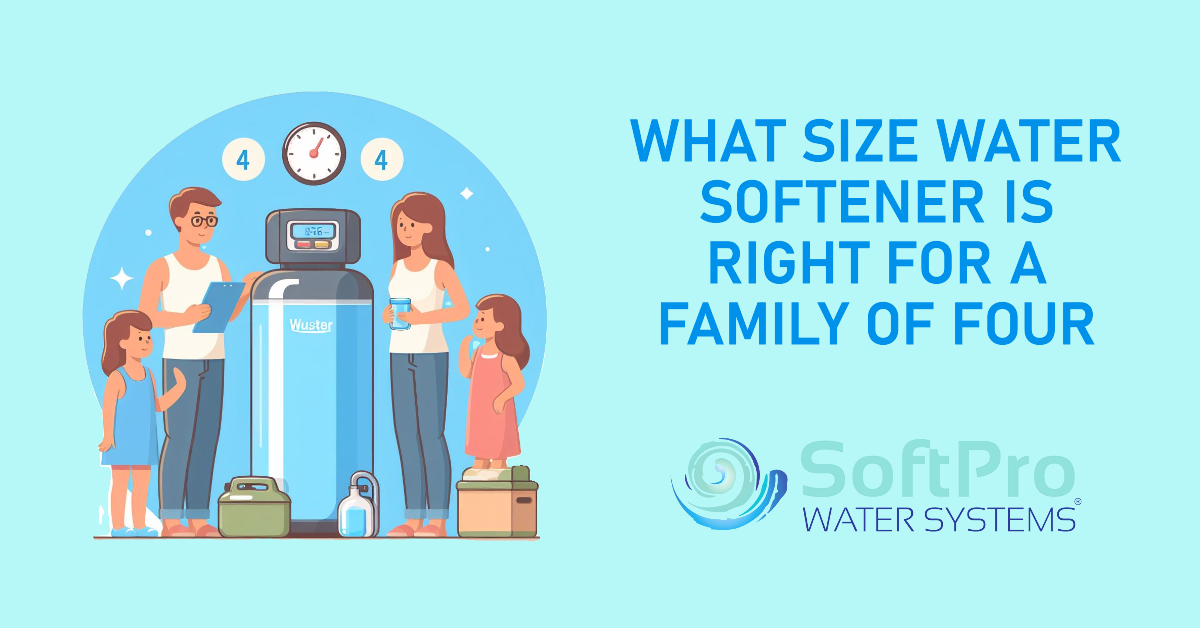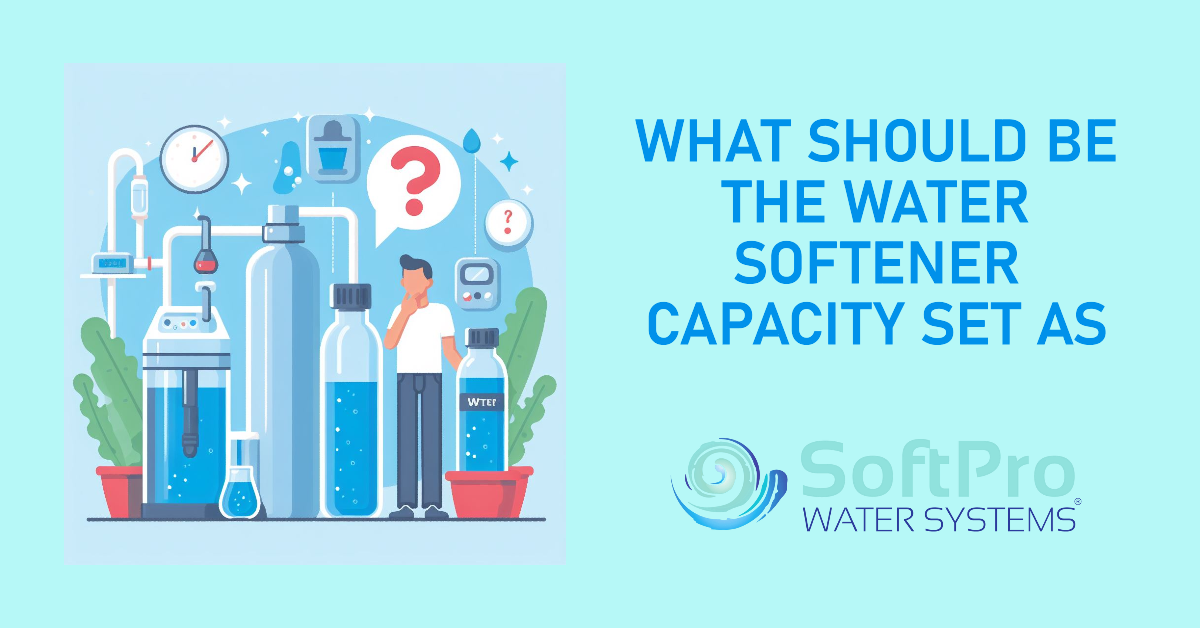What Factors Affect Water Softener Size?
Table of Contents
Water softeners play a crucial role in removing hardness-causing minerals like calcium and magnesium from water, providing numerous benefits such as improved water quality, longer-lasting appliances, and softer laundry. The size of a water softener is a key consideration, as it directly impacts its capacity and effectiveness. Several factors influence the appropriate size of a water softener, ensuring it meets the unique needs and demands of a household or commercial establishment.
Water Hardness Level
The hardness level of water is a primary determinant of water softener size. Water hardness is measured in parts per million (ppm) of calcium carbonate (CaCO3). The higher the hardness level, the larger the water softener required to effectively remove the minerals. Water hardness levels are typically classified as follows:
- Soft Water: Less than 17 ppm CaCO3
- Slightly Hard Water: 17 to 60 ppm CaCO3
- Moderately Hard Water: 61 to 120 ppm CaCO3
- Hard Water: 121 to 180 ppm CaCO3
- Very Hard Water: Over 180 ppm CaCO3
Daily Water Usage
The daily water consumption of a household or business significantly impacts the required water softener size. Factors such as the number of occupants, frequency of showers, laundry loads, and outdoor water usage contribute to the total daily water consumption. A larger water softener is necessary for higher water usage to ensure sufficient capacity to treat all the water used daily.
Peak Water Demand
In addition to daily water usage, peak water demand periods must also be considered when determining the appropriate water softener size. Peak demand occurs when multiple water-intensive appliances or fixtures are used simultaneously, such as during morning showers and laundry cycles. A water softener with a larger capacity can effectively handle these peak demand periods without compromising water quality.
Number of Bathrooms and Fixtures
The number of bathrooms and water fixtures in a household or commercial establishment influences the water softener size. Each bathroom typically consists of a shower, sink, and toilet, while kitchens have sinks, dishwashers, and sometimes ice makers. A larger water softener is required for homes or businesses with more bathrooms and fixtures to ensure adequate treatment capacity.
Iron and Manganese Content
If the water source contains elevated levels of iron and manganese, a larger water softener may be necessary. These metals can cause staining and unpleasant odors in water and can also interfere with the water softener's performance. A water softener with a higher capacity and specialized filtration media can effectively remove iron and manganese, ensuring cleaner and better-tasting water.
Flow Rate
The flow rate of a water softener is another crucial factor to consider. The flow rate determines how quickly the water softener can treat water. A higher flow rate is required for homes or businesses with high water demand or multiple water-using appliances operating simultaneously. A water softener with a lower flow rate may not be able to keep up with the demand, resulting in untreated hard water.
Water Softener Efficiency
The efficiency of a water softener plays a role in determining its size. More efficient water softeners use less water and salt during the regeneration process, resulting in lower operating costs. A more efficient water softener can be smaller in size while still providing adequate treatment capacity.
Space Constraints
The available space for the water softener installation can influence its size. Compact water softeners are available for homes or businesses with limited space. However, compact models may have a smaller capacity and require more frequent regeneration cycles.
Final Thoughts
The size of a water softener is a crucial factor that impacts its effectiveness and performance. By considering factors such as water hardness level, daily water usage, peak water demand, number of bathrooms and fixtures, iron and manganese content, flow rate, water softener efficiency, and space constraints, homeowners and businesses can determine the appropriate size of a water softener to meet their specific needs. A properly sized water softener will ensure a consistent supply of soft water, providing numerous benefits and improving the overall water quality.






![SoftPro Chlorine+ Carbon Whole House Water Filter to Remove PFAS, Chlorine, Chloramine & Pesticides [City Water Filters Series]](http://www.softprowatersystems.com/cdn/shop/files/SoftPro_Whole_House_Carbon_Filter_Chlorine.webp?v=1769127507&width=140)
![SoftPro Iron Filter - Iron Master AIO - Best Iron Filter for Well Water [Air Injected Water Filter / Katalox]](http://www.softprowatersystems.com/cdn/shop/files/SoftPro_AIO_Iron_Master_Iron_Filter_Main.webp?v=1772123747&width=140)













